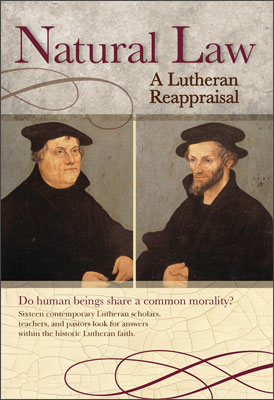We are convinced that God has the best plan for everyone's family. Embedded in our created natures as male and female is a message that Luther identified as a "divine ordinance," namely, "Be fruitful and multiply" (Genesis 1:28; Apol. XXIII (XI), 7; LC, Sixth Commandment, 207; Luther's The Estate of Marriage and his Commentary on Genesis). The Creator's design for husbands and wives to procreate remains in place today just as much as in biblical times (Apol. XXIII (XI), 7-8). Ultimately, it is God who opens and closes wombs (Genesis 20:18, 29:31, 30:22), and we should remain open to his blessings of children while also remaining patient if He chooses to withhold that blessing. We are deeply concerned that not only the secular world, but also many within Christendom, have devalued the vocation of parenthood, particularly during the twentieth century, when marriage rates dropped, divorce rates rose, and abortion and contraception became routine.
We recognize that surgical abortion as well as chemical abortion (via hormonal and mechanical birth control methods, such as the pill and the IUD) fall under the Fifth Commandment's prohibition of murder. Although barrier methods of contraception (condoms, diaphrams, etc.) do not cause the abortion of newly conceived life, some Christians have raised concern that these methods physically separate the two fleshes that Scripture speaks of as "becoming one" (Genesis 2:24; Matthew 19:5; 1 Corinthians 6:16; Ephesians 5:31).
We therefore find ourselves sympathetic to the long-standing consensus of Lutheran church fathers from the Reformation through the mid twentieth century that neither abortion (Fifth Commandment), abortifacient birth control (Fifth Commandment), nor barrier contraception (Sixth Commandment) should be practiced, and we encourage our fellow Lutherans who are exploring the history and theology behind these viewpoints (see, for example, the Lutherans and Procreation blog). For our part, we hope to produce resources that will address the questions that well-intending Christians raise, such as:
- What are the proper roles for Scripture and natural law in our efforts to identify God's moral law?
- How can both licentiousness and legalism be avoided?
- How can both Law and Gospel be properly applied?
- How does the principle of Christian stewardship properly apply to the topic of family planning?
- In what ways does Natural Family Planning differ from contraception?
- What about those rare cases in which some form of artificial family planning -- and perhaps even an abortifacient form -- seems necessary for the preservation of the mother's health?
If you would like to contribute to our ongoing research, please contact us.




